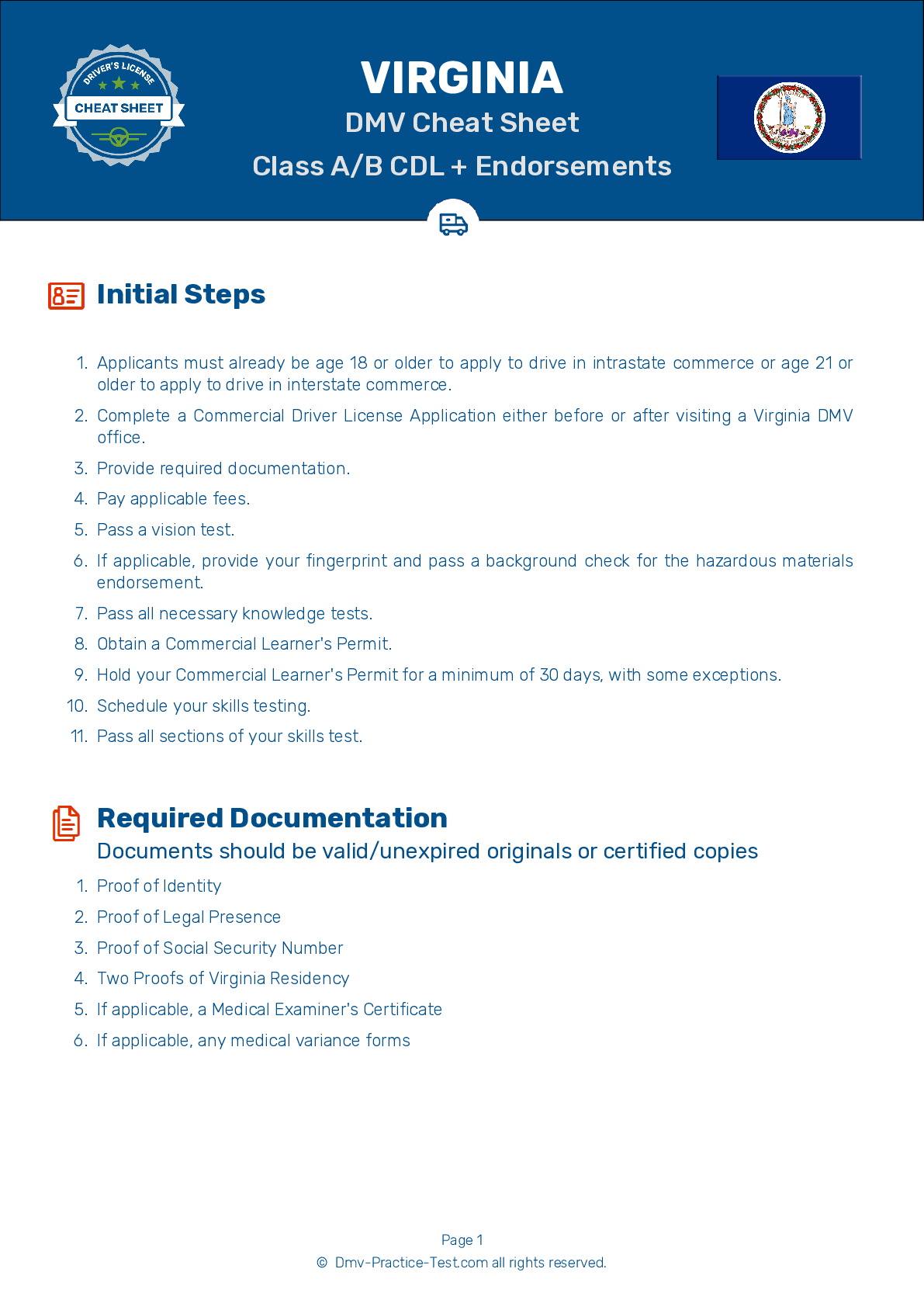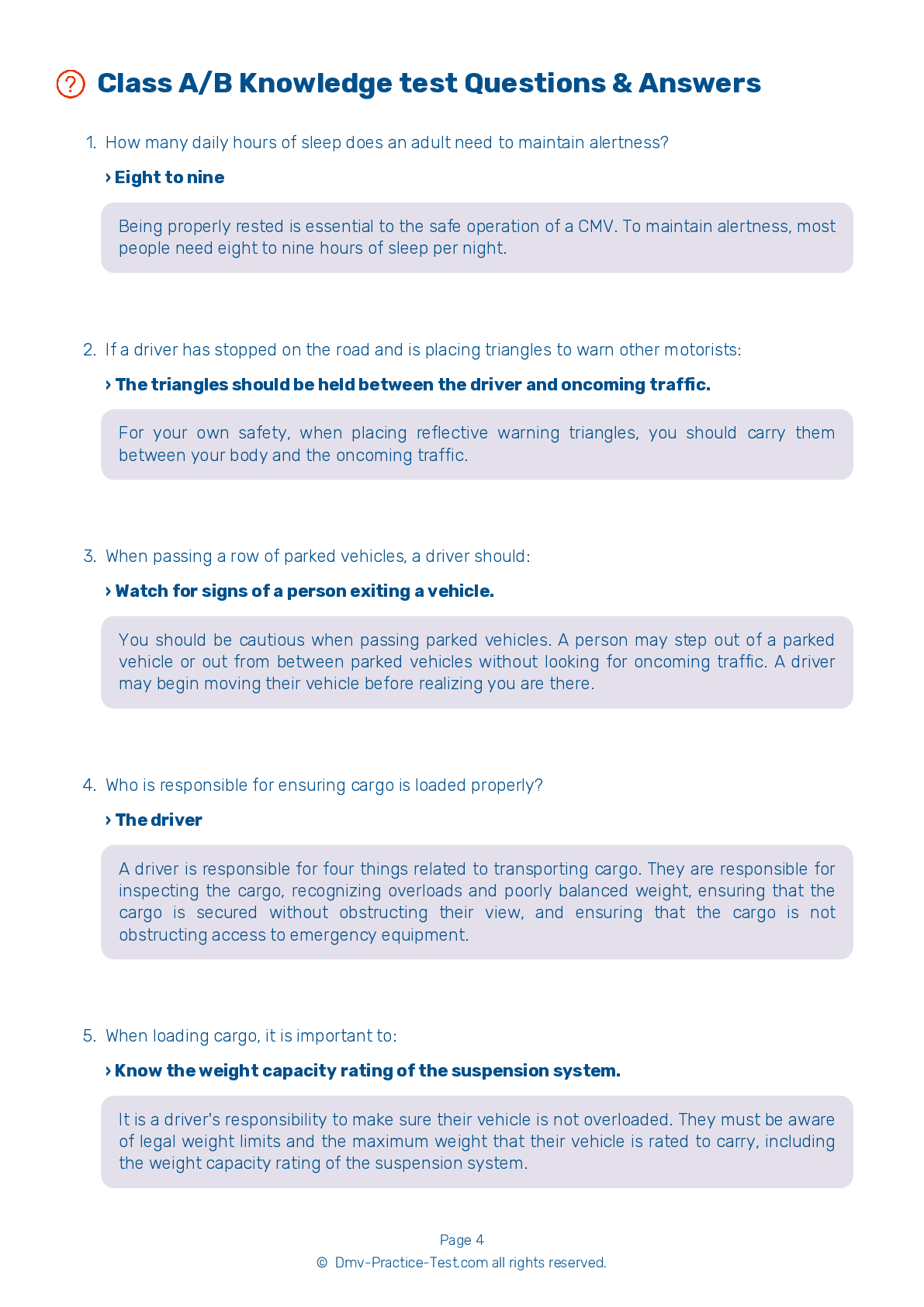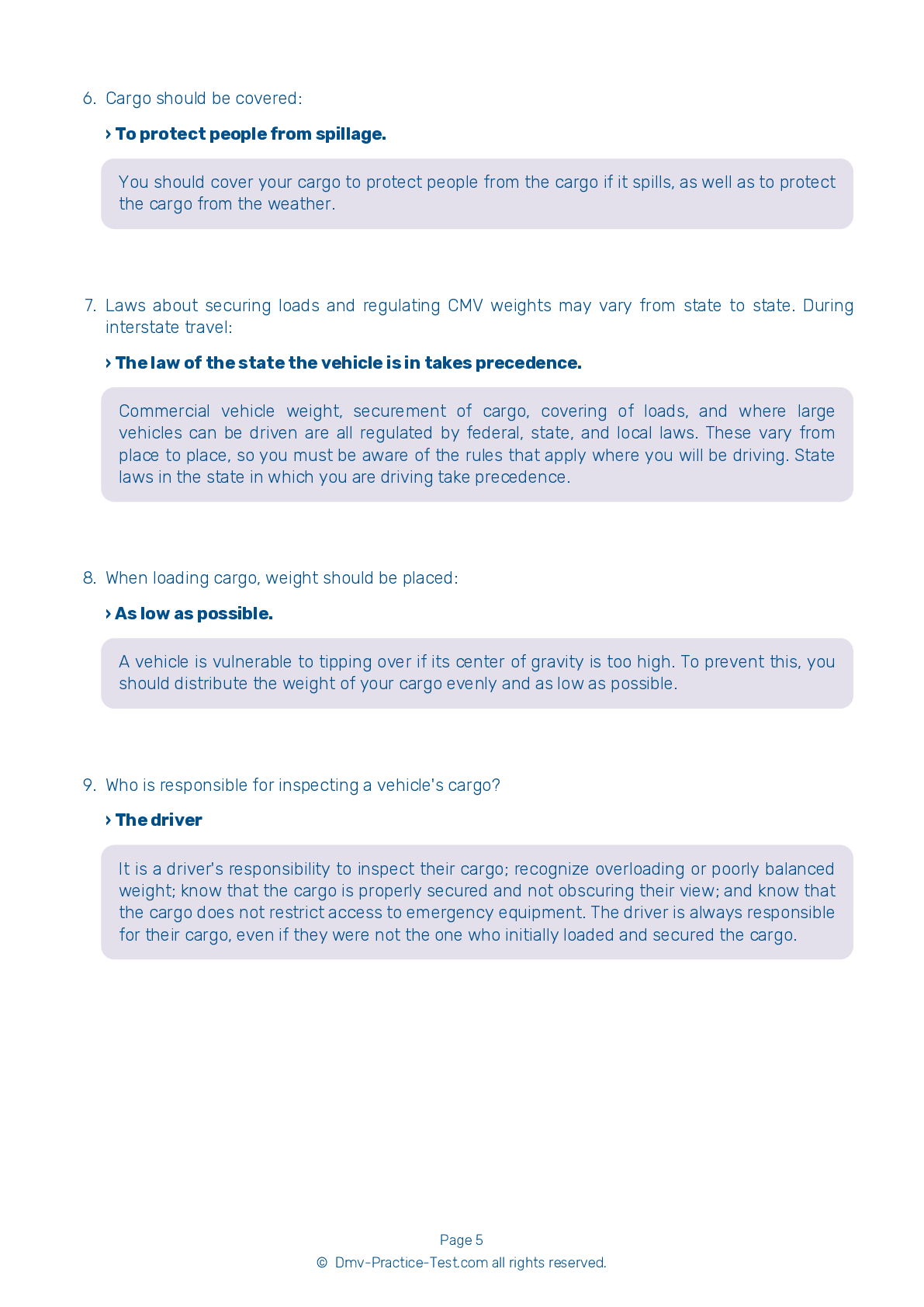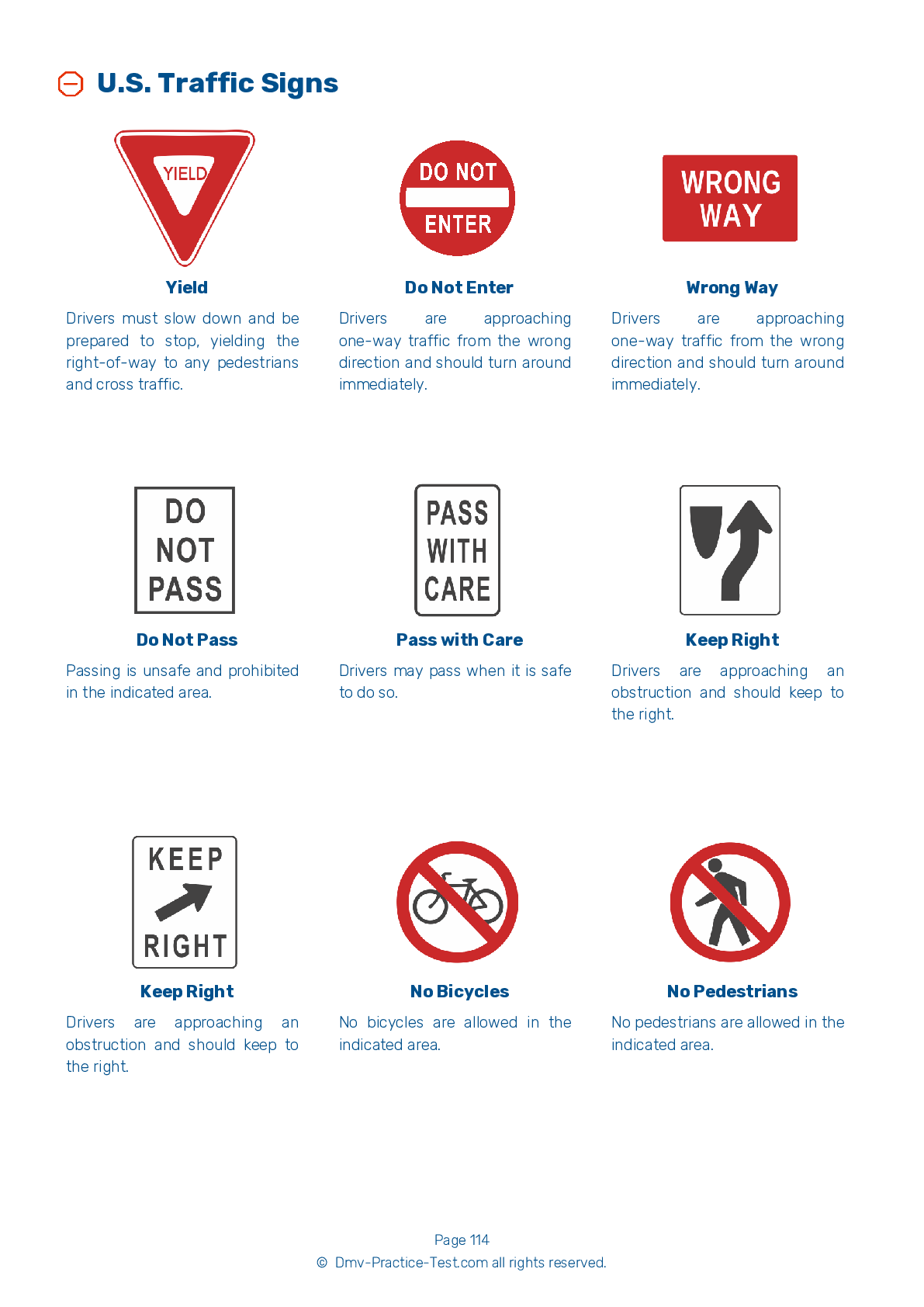Class A Driving Test | Virginia 2026 #2
Train for FREE online with our Virginia class A license test. The official exam test consists of several obligatory parts, with all of them checking your knowledge of different blocks of road rules. If you need to obtain a VA CDL class A permit in 2026, practice as much as possible. Free sample tests published on our website will help you check and improve your knowledge and boost your grades. Please bear in mind that CDL class A requirements may vary from state to state.
1 . ____ are the most likely to be affected by strong winds.
Strong winds can make it difficult for a driver to maintain control of their vehicle. Usually, this is especially true for drivers of lighter CMVs.
2 . To ensure normal stopping power, drivers of vehicles equipped with a front brake limiting valve should:
Some older vehicles have front brake limiting valves with "normal" and "slippery" settings. Setting a brake limiting valve to "slippery" reduces the vehicle's stopping power, so a driver should make sure the valve is in its "normal" position. Front wheel braking has proven to be effective in all driving conditions.
3 . Rims with welding repairs:
Wheels or rims that have had welding repairs should never be used.
4 . Dual tires should:
When inspecting a vehicle, you should verify that your dual tires do not come into contact with one another, or with any other part of the vehicle.
5 . On a curve, the posted speed limit:
The posted speed limit on a curve may be safe to be taken by cars, but can still be too fast to be taken by larger vehicles, such as trucks. An operator driving their truck at the posted limit on a curve could cause their vehicle to tip over.
6 . When encountering a railroad crossing during the driving test, you should:
During the on-road driving test, you must not stop, change gears, pass another vehicle, or change lanes while any part of your vehicle is in a railroad crossing.
7 . A distracted driver:
Distracted drivers perceive hazards on the road more slowly than drivers who are focused, or they do not perceive hazards at all.
See the exact questions that will be on the 2026 Virginia DMV exam.
99.2% of people who use the cheat sheet pass the FIRST TIME
Lillian MCcranie explains how our CDL study guide was helpful in passing the exam and recommends it to everyone.
Cameron tells us how he purchased the CDL exam, and found it to be a useful tool which helped him pass the exam and find a job.



